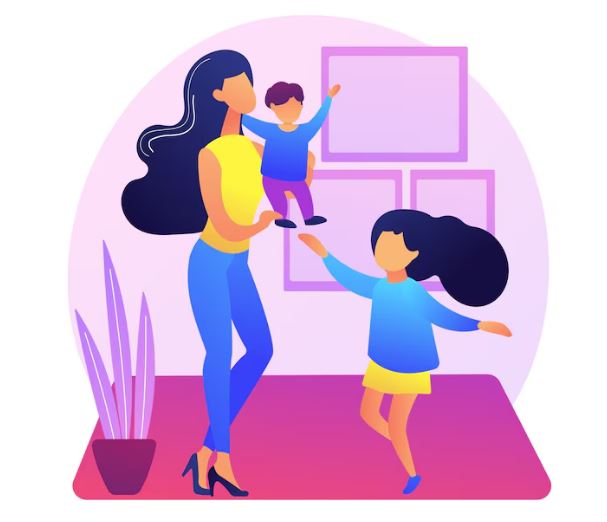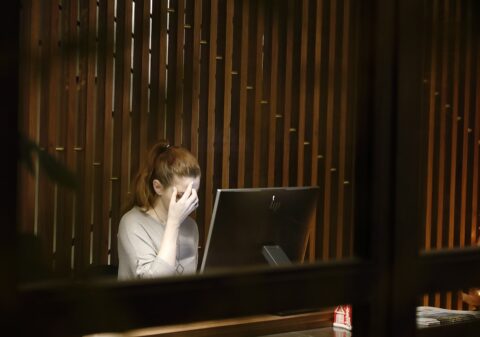High Court of Chhattisgarh Upholds Women’s Right to Child Adoption Leave: A Victory for Gender Equality

In a recent judgment, the High Court of Chhattisgarh at Bilaspur has ruled in favour of Lata Goyal, an Assistant Administrative Officer at the Indian Institute of Management (IIM) Raipur, in her quest for child adoption leave. The case, Lata Goyal v. Union of India (WPS No. 6831 of 2024), highlights the legal and constitutional issues surrounding maternity benefits for women in the workforce, particularly those who adopt children. This decision reiterates the importance of gender equality and the protection of women’s rights in the workplace.
Table of Contents
Background of the Case
Lata Goyal, aged 46, has been employed at IIM Raipur since 2013. In 2023, she and her husband adopted a two-day-old infant girl. Following the adoption, Goyal applied for 180 days of child adoption leave as stipulated by the Central Civil Services (Leave) Rules, 1972. However, IIM Raipur denied her request, citing its HR policy, which does not include child adoption leave. Instead, the institute granted her 60 days of commuted leave, the maximum allowed under its policy for female staff adopting a child under one year old. Dissatisfied with this decision, Goyal filed a writ petition in the High Court of Chhattisgarh, seeking relief.
Rival Contentions
Goyal argued that the denial of child adoption leave was arbitrary, illegal, and unconstitutional. She contended that the IIM’s HR policy explicitly states that where rules are silent, the Central Government Rules should apply. Therefore, she should be entitled to 180 days of child adoption leave under Rule 43-B of the Central Civil Services (Leave) Rules, 1972. Goyal emphasized that the right to motherhood and the right of the child to receive love and care are fundamental rights under Article 21 of the Constitution of India. She also highlighted that denying such leave could force women to leave their jobs, thereby affecting their right to equality and non-discrimination under Articles 14, 15, and 19(1)(g) of the Constitution.
On the other hand, IIM Raipur argued that as an autonomous institution established under the Indian Institutes of Management Act, 2017, it is not bound by the Central Civil Services (Leave) Rules, 1972, unless expressly adopted by its Board of Governors (BoG). The institute contended that the HR policy of IIM Raipur does not include child adoption leave, and the petitioner cannot unilaterally demand the application of the Central Government Rules. The IIM emphasized its administrative and financial independence, granted by the Act, 2017, and argued that the BoG has the authority to frame regulations regarding service conditions, including leave policies.
Legal Provisions and Judgments Relied Upon
The High Court of Chhattisgarh analysed the provisions of the Central Civil Services (Leave) Rules, 1972, and the IIM Raipur’s HR policy. The court noted that the HR policy explicitly states that where rules are silent, the Central Government Rules should apply. The court held that the denial of child adoption leave to Goyal was contrary to the Central Civil Services (Leave) Rules, 1972, and violated her fundamental rights under the Constitution.
The court relied on several legal provisions and judgments, including the Central Civil Services (Leave) Rules, 1972, specifically Rule 43-B, which provides for child adoption leave of 180 days for female government servants adopting a child under one year old. The court also referred to the Indian Institutes of Management Act, 2017, which establishes IIMs as autonomous institutions with administrative and financial independence. Additionally, the court cited Articles 14, 15, 19(1)(g), and 21 of the Constitution of India, which protect the rights to equality, non-discrimination, and life.
The court also referred to several Supreme Court judgments, including Shalini Dharmani v. State of Himachal Pradesh, Minakshi Chaudhary v. Rajasthan State Road Transport Corporation, Devshree Bandhe v. Chhattisgarh State Power Holding Company Limited, and Smt. Sadhna Agrawal v. State of Chhattisgarh, which have emphasized the importance of gender equality and the protection of women’s rights in the workplace.
Analysis of the Court
The High Court of Chhattisgarh emphasized that the right to motherhood and the right of the child to receive love and care are integral to the right to life under Article 21 of the Constitution. The court noted that the participation of women in the workforce is a constitutional entitlement protected by Articles 14, 15, and 19(1)(g). The court further highlighted that beneficial legislation aimed at social justice should be construed liberally to achieve its objectives.
The court held that the denial of child adoption leave to Goyal was arbitrary and violated her fundamental rights. The court emphasized that such leave is not just a benefit but a right that supports the fundamental need of a woman to take care of her family. The court also noted that the IIM’s HR policy, which is silent on child adoption leave, should be supplemented by the Central Government Rules.
Final Decision
The High Court allowed the writ petition to the extent that it declared Goyal entitled to 180 days of child adoption leave as per Rule 43-B of the Central Civil Services (Leave) Rules, 1972. The court directed IIM Raipur to verify and adjust the leave already granted to Goyal. The court held that the denial of child adoption leave was arbitrary and violated Goyal’s fundamental rights. The court emphasized that such leave is not just a benefit but a right that supports the fundamental need of a woman to take care of her family.
Conclusion
The High Court of Chhattisgarh’s decision in Lata Goyal v. Union of India is a significant victory for gender equality and the protection of women’s rights in the workplace. This judgment reemphasises the importance of recognizing and supporting the rights of women who adopt children, ensuring that they are not discriminated against in the workplace. The court’s ruling serves as a reminder that the right to motherhood and the right of the child to receive love and care are fundamental rights that must be protected by law.
For further details write to contact@indialaw.in
By entering the email address you agree to our Privacy Policy.



